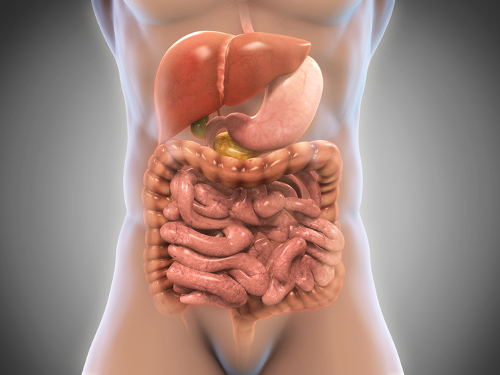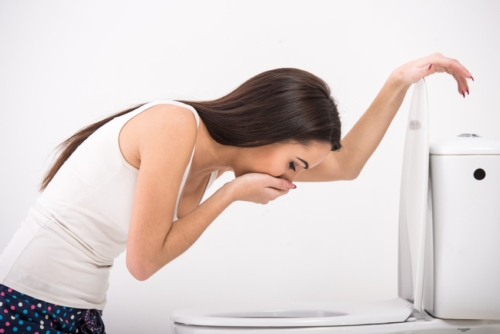 Colon cleanses are re-emerging as a popular health practice, but their roots date back to Ancient Greece.
Colon cleanses are re-emerging as a popular health practice, but their roots date back to Ancient Greece.
And after falling from prominence in America in the 1920s and ’30s, they are coming back in a big way for people concerned about gut health and “toxicity.”
But are there any real benefits of a colon cleanse? It depends.
They can provide a short-term solution and relief from pain associated with constipation, but for the most part, they won’t offer any long-term health benefits and do have the potential for some nasty side effects. As far as any substantial health benefits associated with colon cleansing, the jury is still out.
What Is a Colon Cleanse?
Put bluntly, a colon cleanse is the removal of waste from your large intestine. There are a couple of ways to do it: one is to take supplements or medications to push the waste out—these are typically in liquid of pill form and can be purchased online and in health food stores, grocery stores, and pharmacies. Examples include:
- Enemas
- Laxatives (both stimulant and non-stimulant varieties)
- Herbal teas
- Enzymes
- Magnesium
Some of these options are taken orally while others are inserted through the rectum.
The other form of colon cleansing—which is performed by a professional—is called colon irrigation or high colonics. This procedure works very much like a traditional enema but uses far more water and is less likely to produce nasty odors and discomfort.
A typical procedure for colon irrigation would involve lying on a table while a “low-pressure pump or gravity-based reservoir flushes out several gallons of water through a small tube inserted in your rectum.” Sometimes the water may be infused with enzymes, herbs, coffee, or probiotics to stimulate the bowels and maybe aid with the removal, but other than coffee, I can’t see any of these additions being effective.
Health Benefits of a Colon Cleanse
Cleansing your colon may have the short-term benefit of relieving the discomfort of constipation, but other than that it appears the procedure’s positives are largely theoretical. So, the basic idea behind a colon cleanse is that it removes potentially dangerous toxins from the body. The main belief behind their use is that undigested meats and other food result in a mucus buildup in the intestine.
From there, the mucus is believed to produce toxins that enter the bloodstream and poison the body. From a theoretical standpoint, this might seem sensible, but there’s isn’t really any evidence backing up that this happens.
Most of the listed benefits are “potential” benefits—and that can’t be stressed enough. It’s possible a colon cleanse might help with these issues, but there are some much better (and proven) methods you can use to combat the same issues that have you thinking about a colon cleanse.
1. Relief from Constipation
Constipation can be extremely uncomfortable; it can result in sharp pains in your abdomen, cause great discomfort, lower your quality of life, and even lead to fainting. Constipation also leads to poor nutrient absorption, which can result in fatigue, inflammation, and a weakened immune system. If you’re looking to get trapped waste out, a high colonic can flush your system quickly so you can get back to life.
There are some proponents claiming that a colon cleanse can improve overall digestion, but that is unlikely. It may lead to improved digestion immediately following the procedure, but will have long-term negative effects on digestion. The best way to improve digestion—and even eliminate the need for a colon cleanse—is to eat a healthy, balanced diet that’s high in fiber. That’s also the best way to avoid constipation and limit inflammation.
2. May Improve Energy
Nutrient absorption plays a big role in energy levels. When your body isn’t getting all the nutrients it needs, it functions less efficiently and is more prone to inflammation. This can lead to feelings of fatigue and discomfort. If—and it’s a big if—colon cleanses improve digestion, they will improve digestion, absorption, and lead to more energy. Also, if you are constipated and the waste is removed, you’re likely to have more energy.
What’s important to remember here is that your levels of inflammation and nutrient absorption are determined by what you eat. If you eat a healthy diet full of fruits, vegetables, legumes, whole grains, healthy fats, and lean proteins, you’re getting all the nutrients you need and are also very unlikely to need a colon cleanse. A poor diet will result in constipation more often than not.
3. Motivation
The biggest benefit of cleansing your colon might be that it increases incentive to eat a more nutritious diet and get some exercise. Diet and exercise play the biggest role in digestion, energy levels, nutrient absorption, and waste removal, so the mere idea of using natural methods to avoid having a tube stuck up your rectum may do it for some.
Are There Any Side Effects of Colon Cleanses?
For the most part, there aren’t any serious negative side effects associated with colon cleanses. Of course, they’re not something you want to rely on. A more healthful approach to combatting the problems colon cleanses are supposed to fix would be to adopt a high-fiber, healthy, balanced diet, and include some light-to-moderate exercise into your daily routine.
Risks associated with colon cleanses increase the more often a person has them, and some of those potential side effects include:
 Vomiting
Vomiting- Nausea
- Cramps
- Dizziness (likely associated with dehydration)
- Mineral imbalances
- Interference with medicine absorption (on the day of procedure)
- Bowel perforation
- Infection
- Depletion of healthy bowel flora unless replaced (“good bacteria” or probiotics).
This risk of doing colon cleanses regularly and for the long term is that it will severely throw of your gut bacteria environment. If you already have an unbalanced microbiome, you could be making it worse by flushing out the limited amount good bacteria that is present.
You should avoid a colon cleanse if you’ve got:
- Diverticulitis
- Ulcerative colitis
- Crohn’s disease
- Hemorrhoids
- Tumors in your rectum or colon
- Heart disease
- Kidney disease
And remember: always consult your doctor before the procedure.
Should You Have Your Colon Cleansed?
There aren’t any huge risks, and if you’re doing it for short-term relief from painful constipation, it might be worth looking into. After all, it’s highly unlikely it will do any damage. But it’s not something to be made a habit of. Instead, focus on improving digestion, nutrient absorption and “detoxing” through diet.
Fiber is proven to improve gut bacteria, aid digestion and absorption, and can be increased by making healthy choices. Eating a diet rich in fruits, vegetables, legumes, probiotics, and other whole, natural foods can create a gut environment that will do more for your health than a colon cleanse ever will.
Related:
- New Study Questions This Colon Cleanse
- Tips For a Quick and Easy Colon Cleanse
- What Does Dark Green Poop Mean?
